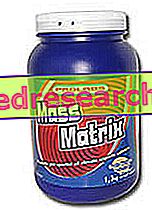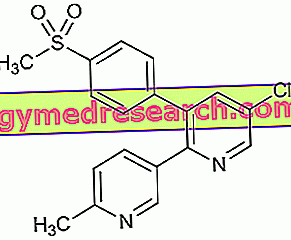
What is Dinutuximab beta Apeiron and what is it used for?
Dinutuximab beta Apeiron is an anticancer medicine used in the treatment of neuroblastoma, a cancer of nerve cells, in patients over one year of age. It is used in two groups of patients presenting with high-risk neuroblastoma (with a high probability of relapse):
- patients who have shown some improvement with previous treatments, including blood stem cell transplantation (a transplant of blood-producing cells);
- patients whose neuroblastoma has not improved with other anticancer treatments or has recurred.
In the event that the neuroblastoma has recurred after a previous treatment, it is advisable to stabilize it (prevent a worsening) before starting treatment with Dinutuximab beta Apeiron. In some cases, when previous treatments have not been effective enough, Dinutuximab beta Apeiron is used together with another medicine called interleukin-2 (aldesleukin).
Because the number of patients with neuroblastoma is low, the disease is considered "rare" and Dinutuximab beta Apeiron was designated an "orphan medicine" (a medicine used in rare diseases) on 8 November 2012.
The medicine contains the active substance dinutuximab beta.
How is Dinutuximab beta Apeiron used?
Dinutuximab beta Apeiron is given by infusion (drip) into a vein. Each cycle of treatment with the medicine is given for five or 10 days every 35 days. It is administered for a total of five cycles. The recommended dose depends on the weight and height of the patient.
In the event of certain side effects, the doctor may decide to reduce or postpone the administration of the doses or, if these effects are serious, to stop the treatment.
Treatment with Dinutuximab beta Apeiron should not be started unless the patient has satisfactory results in certain blood tests related to liver, lung, renal, and bone marrow function.
Treatment with Dinutuximab beta Apeiron should be supervised by a doctor experienced in treating cancer. It must be administered in the hospital by a doctor or nurse who can handle severe allergic reactions and where resuscitation services are immediately available, if needed. The medicine can only be obtained with a prescription.
For more information, see the summary of product characteristics (included with EPAR).
How does Dinutuximab beta Apeiron work?
Dinutuximab beta Apeiron is a monoclonal antibody (a type of protein) designed to recognize and bind to a structure called GD2 present in high amounts on the surface of neuroblastoma cells, but not normal cells.
When Dinutuximab beta Apeiron binds to neuroblastoma cells, it makes them a target for the body's immune system (the natural defenses), which then kills cancer cells.
What benefit has Dinutuximab beta Apeiron shown during the studies?
Studies have shown that Dinutuximab beta Apeiron is effective in increasing survival in patients with neuroblastoma.
Two studies examined data from 88 children and adults with neuroblastoma who had not regressed with other anticancer treatments or who had returned. Patients were treated with Dinutuximab beta Apeiron plus interleukin-2 and another medicine called isotretinoin. In these studies, 70% and 78% of patients whose neuroblastoma had not regressed by other treatments were still alive two years after treatment.
Among patients with neuroblastoma that had recurred, 42% and 69% were still alive two years after treatment. In a third study, 370 children with high-risk neuroblastoma who regressed following other treatments received Dinutuximab beta Apeiron and isotretinoin with or without interleukin-2. At the start of treatment some of these patients showed no signs of neuroblastoma and some still showed some signs of the disease. Among patients who had no signs of neuroblastoma, 71% were still alive three years after treatment and the results were similar whether treatment included interleukin-2 or not. Among patients presenting with some signs of neuroblastoma, 63% of those given interleukin-2 were still alive three years after treatment compared to 54% of patients who had not received interleukin-2.
In these studies, the results with Dinutuximab beta Apeiron were better than those previously observed in patients treated for neuroblastoma without Dinutuximab beta Apeiron.
What are the risks associated with Dinutuximab beta Apeiron?
The most common side effects with Dinutuximab beta Apeiron (which may affect more than 7 in 10 people) are pyrexia (fever) and pain. Other side effects (which may affect more than 3 in 10 people) are hypersensitivity (allergy), vomiting, diarrhea, capillary leak syndrome (loss of fluid from blood vessels which can cause swelling and a drop in blood pressure) and hypotension (pressure low blood pressure).
Dinutuximab beta Apeiron should not be used in patients with transplant disease against the host (when transplanted cells attack the body) in severe or diffuse form.
For the full list of restrictions and side effects reported with Dinutuximab beta Apeiron, see the package leaflet.
Why has Dinutuximab beta Apeiron been approved?
The Agency's Committee for Medicinal Products for Human Use (CHMP) has noted the absence of therapeutic options that prevent a relapse of high-risk neuroblastoma.
Overall, data on results with Dinutuximab beta Apeiron show that the medicine is effective. However, further information is needed to fully understand the effectiveness of the medicine.
Although treatment with Dinutuximab beta Apeiron may cause serious side effects, the safety of the medicine is considered acceptable.
The CHMP therefore decided that Dinutuximab beta Apeiron's benefits are greater than its risks and recommended that it be approved for use in the EU.
Dinutuximab beta Apeiron was authorized in "exceptional circumstances" because complete information on Dinutuximab beta Apeiron could not be obtained for ethical reasons. Since dinutuximab is a recommended treatment for high-risk neuroblastoma, it would be unethical to conduct a study in which some patients were given placebo (a dummy treatment). Every year the European Medicines Agency will review the new information available and this summary will be updated accordingly.
What information is still awaited for Dinutuximab beta Apeiron?
Because Dinutuximab beta Apeiron has been authorized in exceptional circumstances, the company that markets Dinutuximab beta Apeiron will monitor the safety of the medicine on the basis of a patient register and provide annual updates. The company will also carry out tests in order to obtain further information on how the medicine is processed by the body and how the immune system responds to the medicine. The company will provide the results of a study related to the effect of administration of Dinutuximab beta Apeiron together with interleukin-2. In addition, he will present a report on the five-year survival rates of the patients who participated in the studies.
What measures are being taken to ensure the safe and effective use of Dinutuximab beta Apeiron?
Recommendations and precautions to be followed by healthcare professionals and patients for the safe and effective use of Dinutuximab beta Apeiron have been included in the summary of product characteristics and the package leaflet.
More information on Dinutuximab beta Apeiron
For the full EPAR version of Dinutuximab beta Apeiron, see the Agency website: ema.europa.eu/Find medicine / Human medicines / European public assessment reports. For more information on treatment with Dinutuximab beta Apeiron, read the package leaflet (also part of the EPAR) or contact your doctor or pharmacist.
The summary of the opinion of the Committee for Orphan Medicinal Products related to Dinutuximab beta Apeiron is available on the Agency's website: ema.europa.eu/Find medicine / Human medicines / Rare disease designation.



